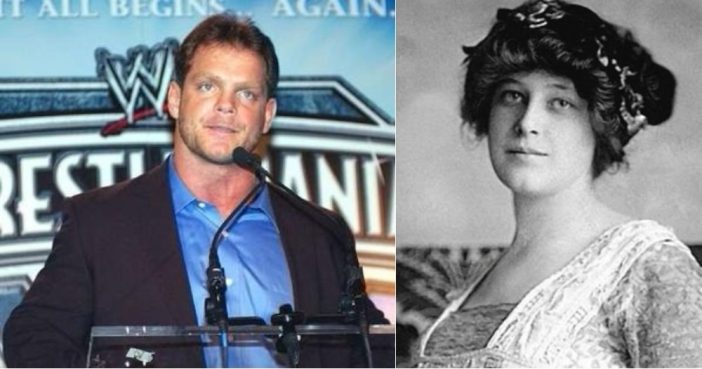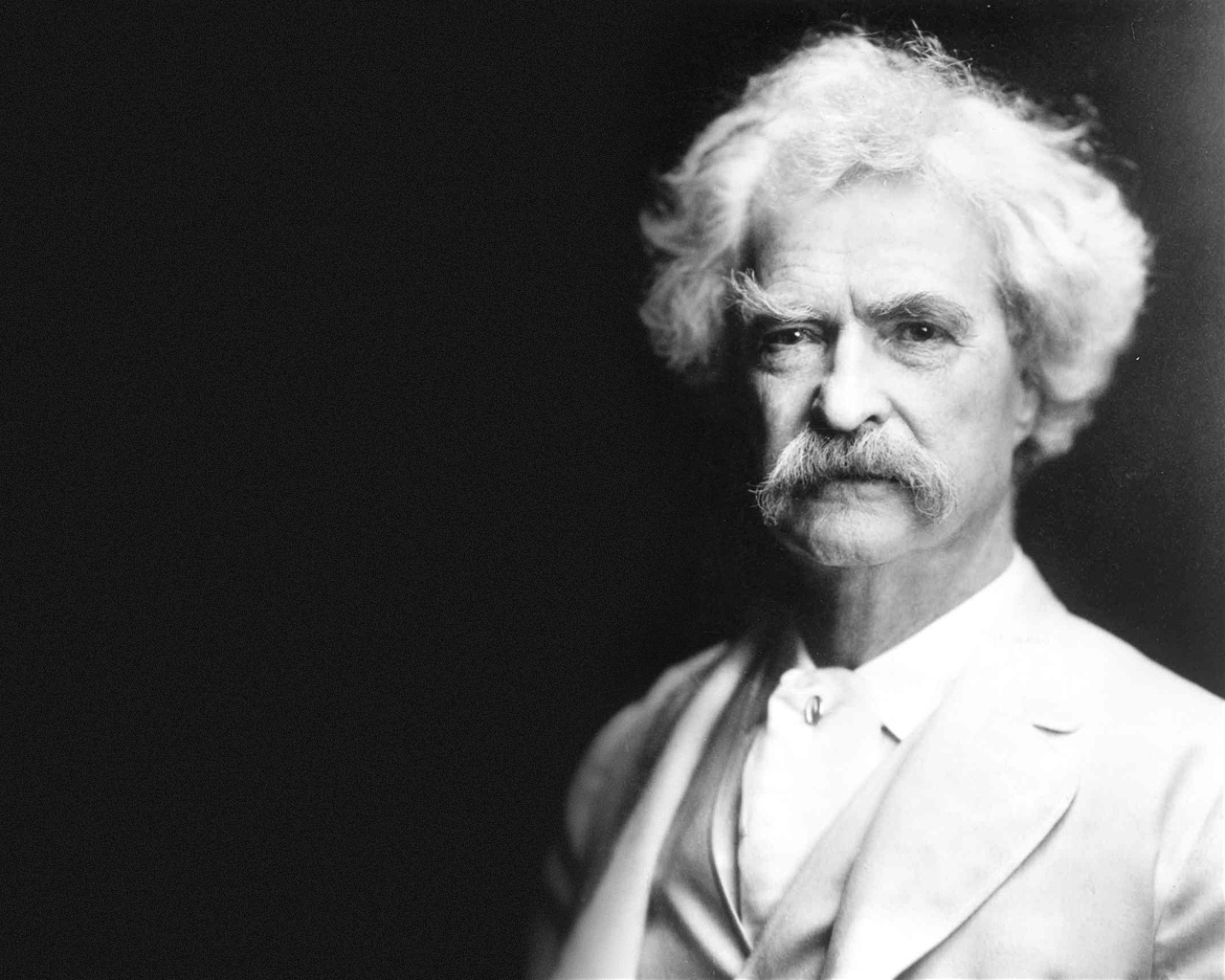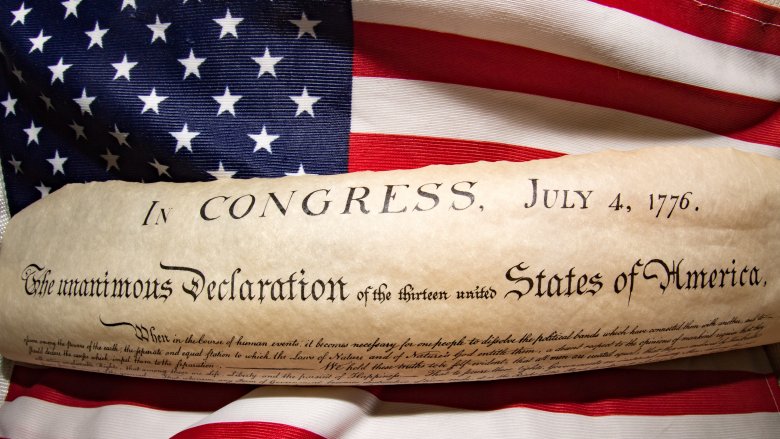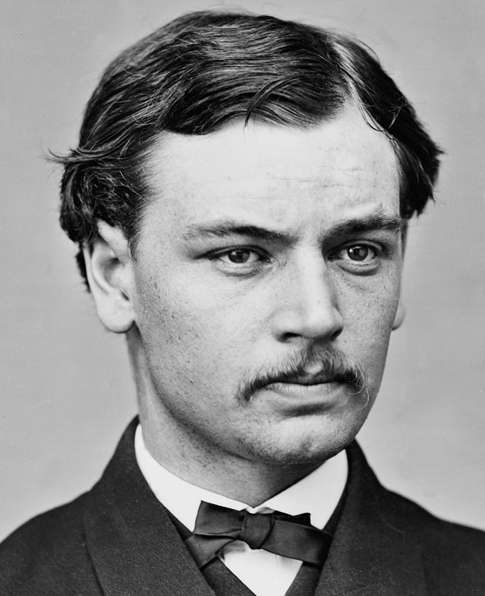
Mark Twain’s connection to Halley’s Comet

Halley’s Comet buzzes by Earth once every 75 years or so, and it’s crazy to think that it’s been witnessed and recorded by skygazers as far back as 239 BC (via Space). It’s appeared over epic events like William the Conqueror’s invasion of England, and it’s no wonder that people tend to think of the comet as heralding change. When it returned to our skies in 1835, it welcomed a change to the literary landscape: Mark Twain was born just two weeks after the comet had passed overhead.
The University of Houston’s John H. Lienhard says that particular sign didn’t go unnoticed either, least of all by Twain himself. Halley’s Comet was getting ready to come around again when he wrote the ominously prophetic words, “I came in with Halley’s Comet… It is coming again… and I expect to go out with it… The Almighty has said, no doubt: ‘Now here are these two unaccountable freaks; they came in together, they must go out together.'”
And that’s exactly what happened. Halley’s Comet reappeared the next year, and Twain died on April 21, 1910, just as the comet passed overhead. So, how about it: was it a bit of cosmic foreshadowing, an omen of change, or a spooky coincidence?
July 4 was a deadly day for the Founding Fathers

Ask any red-blooded American what July 4 is and you’re bound to get an answer that involves something about independence, freedom, and the names of their own personal bald eagles. But July 4 has another weird significance that’s usually overlooked in favor of the sorts of things you can cheer about while setting off fireworks: Founding Father fatalities.
According to Biography, five of America’s Founding Fathers served as President: James Madison, John Adams, George Washington, Thomas Jefferson, and James Monroe. The weird part? Three of them died on the same date: July 4. And it gets weirder.
Jefferson and Adams both died on the exact same day: July 4, 1826, which you’ll recognize as significant if you’re a math whiz, because it’s the 50th anniversary of the signing of the Declaration of Independence. According to the Constitution Center, the coincidence didn’t go unnoticed as it happened, and when Daniel Webster wrote a joint eulogy for them, he said, “It cannot but seem striking and extraordinary, that these two should live to see the fiftieth year from the date of that act, [and] the heavens should open to receive them both at once.”
Only a few years later, James Monroe died on July 4, 1831. Don’t forget that Monroe was only the country’s fifth president, meaning that when he died (during the term of Andrew Jackson, the seventh and most badass president), that meant not only had three of seven died on the same date, but they’d died on their country’s birthday. That’s enough to make anyone believe in signs.
Now, while we’re on the subject of deadly presidential coincidences…
Robert Todd Lincoln was closely connected to three presidential assassinations

Robert Todd Lincoln — President Lincoln’s oldest son — was an iconic figure. There’s been plenty written about his father, but far less about RTL himself. That’s a shame, too, because his life is just as fascinating as his dad’s. For instance, Robert Todd Lincoln was tragically up-close-and-personal for no fewer than three presidential assassinations.
The Blog of the James A. Garfield National Historic Site gives a great rundown on why Robert Todd always felt like he was cursed. Things started first with the infamous assassination of his own father. He was supposed to be at Ford’s Theater the night John Wilkes Booth would pull the trigger but told his parents he was going to turn in early instead. He was at the President’s side when he died the next morning.
In 1881, the younger Lincoln accepted a position as Secretary of War for President James Garfield. Soon after, Garfield was shot at the Baltimore and Potomac train station in Washington DC on July 2, 1881. Lincoln was walking about 40 feet behind the President when it happened, and Garfield died from his injuries 80 days later.
Lincoln gave up political service and became president of the Pullman Palace Car Company. In 1901, he and his family decided to visit Buffalo, New York’s Pan-American Exposition. He got off the train and was handed a telegram: President William McKinley had just been shot — at the Pan-American Exposition in Buffalo.
There’s a tenuous link to a fourth presidential death, too, as his final public appearance was at the dedication of the Lincoln Memorial. President Warren Harding conducted the ceremony… and he died 14 months later. Even if you don’t count Harding, 3 presidents in 36 years would have the biggest skeptic thinking twice about who he’s hanging out with.
9/11 pop culture coincidences

There are plenty of conspiracy theories suggesting the U.S. government had advance knowledge of what was going to happen on September 11, 2001, just as there are plenty of reasons conspiracy theorists are generally regarded as loony. But some pop culture coincidences are enough to make you wonder if something out there in the universe was trying to tip us off.
The first is hidden in a video game called Deus Ex. The game came out in 2000, and the story takes you to New York City. Take a gander at the skyline, and you’ll notice two buildings are conspicuously missing: the Twin Towers. Even stranger, the game’s lore acknowledges it, saying they were destroyed by terrorists. What? According to Kotaku, they were excluded from the skyline because of memory constraints, but still.
If that’s not weird enough, let’s talk about Dream Theater. The band was in New York at the time of the attack, and it also happened to be releasing its album Live Scenes From New York. The album hit stores on September 11, 2001, and the cover featured an apple, the Statue of Liberty, and the Twin Towers … all on fire. Live scenes, indeed. When Noisecreep spoke to Dream Theater’s Mike Portnoy, he called it “one of the strangest coincidences of my career.”
November 9 is a weirdly significant date in German history
True, there are only 365 possible dates for any given event in the modern era, but the fact that six monumental events in German history have taken place on November 9 is enough of a coincidence that the whole country should be eyeballing the calendar every time it rolls around.
ThoughtCo took a look at the specifics, and it’s staggeringly creepy just how many nation-changing events happened on that day. It started in 1848 with the execution of Robert Blum. You might not know the name, but he was a crusader for establishing democracy throughout the German-speaking world. Fast-forward a bit to November 9, 1918, and Germany’s first democracy — the Weimar Republic — was established. Fine, fine, two events don’t make a pattern. On November 9, 1923, Hitler and his followers tried to overthrow the Weimar Republic with their Bierkellerputsch, and while that failed, we all know what happened to Hitler next. Two years later — also on November 9 — he founded the elite SS force.
The German hits just keep on coming. November 9, 1938, was known as Kristallnacht (“Night of Broken Glass”), when the Nazis unleashed hell on Jews across the country. It’s one of the most notorious dates in German history, and it’s also the day the Berlin Wall fell in 1989. The fall of the Berlin Wall is the kind of thing you could make a national holiday out of in Germany, but it’d be tough with all the horrible things that have also happened on November 9.
